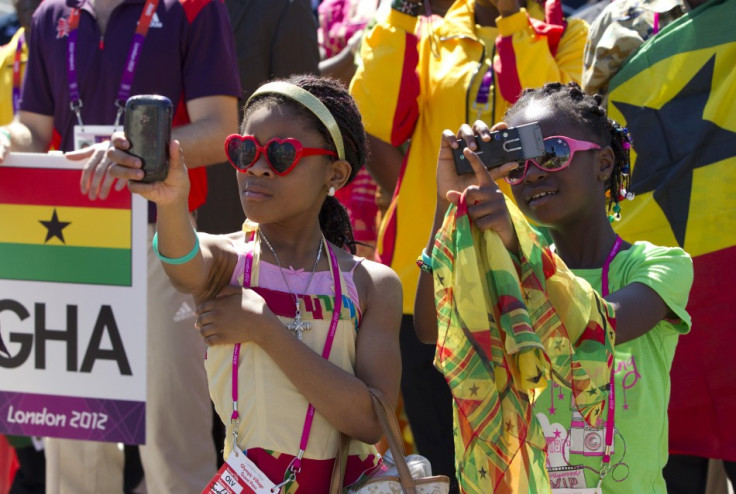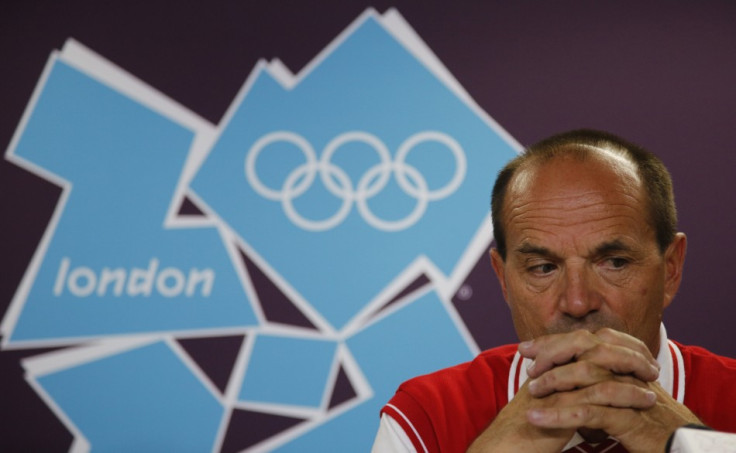London 2012 Olympics: 'All That Twitters is Gold' as Social Media Dominates Games

The most anticipated head-to-head battle of the London Olympics is suddenly looking a bit one-sided as social media upstart Twitter sprints away with the headlines while its established rival Facebook remains stuck in the blocks.
Twitter has so far overwhelmingly dominated the social media impact of London 2012, capturing headlines and sparking impassioned debate as users share results, opinions and complaints in what have become the first truly global digital Games.
In fact, Twitter's influence on London 2012 was evident before the Games even began as we learned that Greek long-jumper Viula Papichristou was to be expelled for using the social media site to share a tasteless - many would say racist - joke about African immigrants living in Athens. A Swiss footballer, Michel Morganella, suffered the same fate for a French-language Tweet a few days later that attacked South Koreans and reminded us the social website's influence is by no means monolingual.
The site then quickly became a "real-time" hub of global discussion during the Games' opening ceremonies, with users sharing light-hearted critiques, opinions and context as Danny Boyle's at-times baffling, yet always brilliant "Isles of Wonder" pageant unfolded.
"Idiotic"
Sadly, the convivial tone was lost on one British lawmaker, the Conservatives Member of Parliament Aidan Burley. His description of Boyle's vision as "leftie multicultural crap" was roundly criticised by the both media and public figures alike, including Prime Minister David Cameron, who called the Tweets "idiotic".
The site - or rather its ubiquity - was then partly blamed for overloading broadband capacity in and around London on the first day of competition. Tens of millions of shared messages during the men's cycling road race jammed the International Olympic Committee's Global Positioning Systems (GPS) and prevented broadcasters from tracking the exact location of the riders.
"Kind of take it easy", the IOC pleaded (not Tweeted) as it implored fans to keep messaging limited to "urgent, urgent" ones.
It's a tough ask given the more than 15m followers the IOC claims for its myriad social media tags. Once of which - @OlympicSeat - is causing Games organizers more than a bit of embarrassment.
The address shares the tongue-in-cheek musings of a fictional empty seat at a London 2012 venue and has more than 17,000 followers.
The issue of empty seats in the "sold out" Games has been the single biggest criticism of the London Olympic Games Organizing Committee (Locog) and a source of tremendous anger and frustration for Londoners who feel locked out of the jamboree.
The IOC figures, however, do provide an interesting context for what investors think the site might be worth on the open market.
$10 billion

Last week the New York Times reported that Apple had held talks with Twitter executives about making an investment into the micro-blogging site that the paper said would value it at around $10bn. While sales figures are not yet publically available, the company says it hopes to generate around $1bn in advertising revenue by 2014 - just four years after selling its very first add in 2010.
The social media's site's power took on a much darker tone, however, with news of the arrest of a 17-year old on "suspicion of malicious communications" in connection with a series of threating and abusive Tweets aimed at one of Britain's top Olympic hopefuls, Tom Daley, after his disappointing fourth place finish in the men's synchronised diving event.
Ironically, neither the abusive Tweets themselves - nor the alleged sender - were the spark that ignited the most intense debate over free speech in and around the Games. That distinction goes to Guy Adams, the Los Angeles-based correspondent of the UK's Independent Newspaper.
Adams had his Twitter account suspended Monday after publishing the email address of US broadcaster NBC's Olympic coverage President, Gary Zenkel, amid a series of Tweets castigating the network for its decision to focus on tape-delayed coverage of the Games instead of live events.
Twitter, which partners with NBC in its Games coverage, claimed Adams violated the site's privacy guidelines. Adams countered that the email address was public information and the real reason his account was blocked was because of a highly-critical piece he had published that very day on the UK paper's website.
His suspension was lifted late Tuesday, with humble and apologetic statements from both Twitter and NBC, who seemed caught off-guard by the swift and vitriolic backlash to their inconsistent application of privacy rules.
Using the platform to voice displeasure hasn't been limited to the fans and the media, either.
"Rule 40"
US athletes have launched a Twitter campaign against what's known as "Rule 40", an IOC restriction on the promotion of "non-official" commercial brands during the Games.
Lost in the entire narrative of the so-called "Twitter Games" is even the mention of the word "Facebook". The heretofore titan of social media has yet to make any kind of impact on the fan or athlete experience of London 2012 and has only found its way into the headlines after its shares hit a record low Tuesday after falling more than 40 percent from its now infamous $100bn initial public offering on 18 May.
Perhaps Twitter's micro-blogging format and 140-character limit is perfectly suited to the hectic schedule and frenetic pace of the multi-ringed circus that is the modern Olympiad.
It also seems to better reflect the needs of a remote audience that could shares experiences from anywhere in the world, whereas Facebook's image-heavy format caters to users posting photos and video from somewhere specific.
What's beyond dispute, however, is the fact that Twitter has found itself firmly at the centre one of the few legitimately global media events.
And its power and influence is only now being fully appreciated.
© Copyright IBTimes 2025. All rights reserved.





















